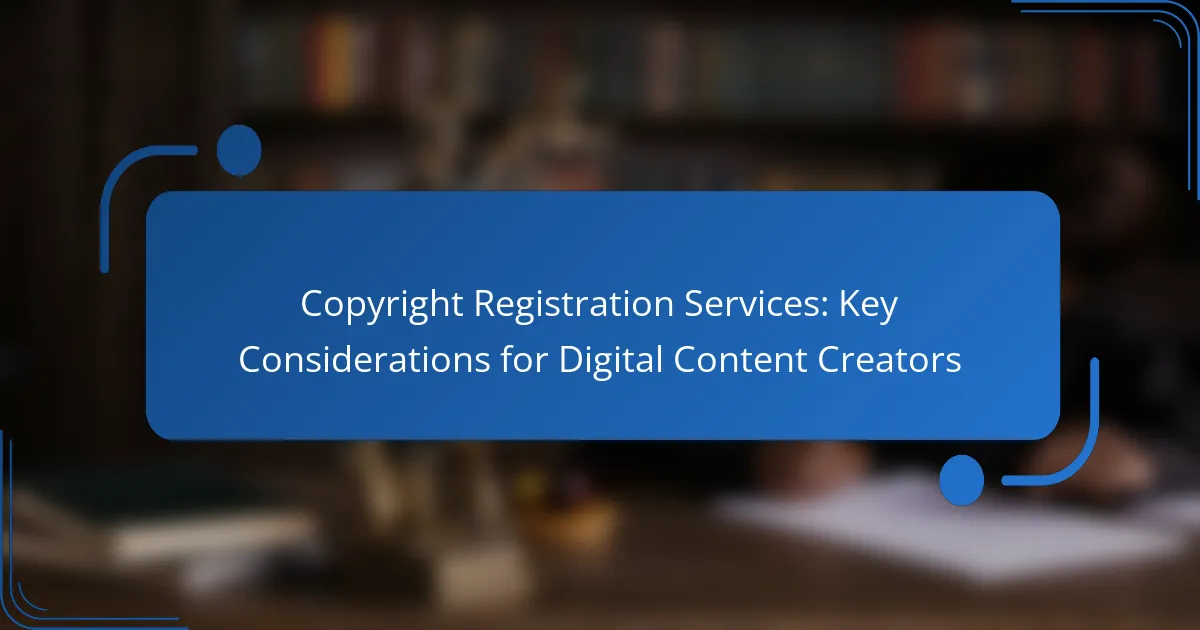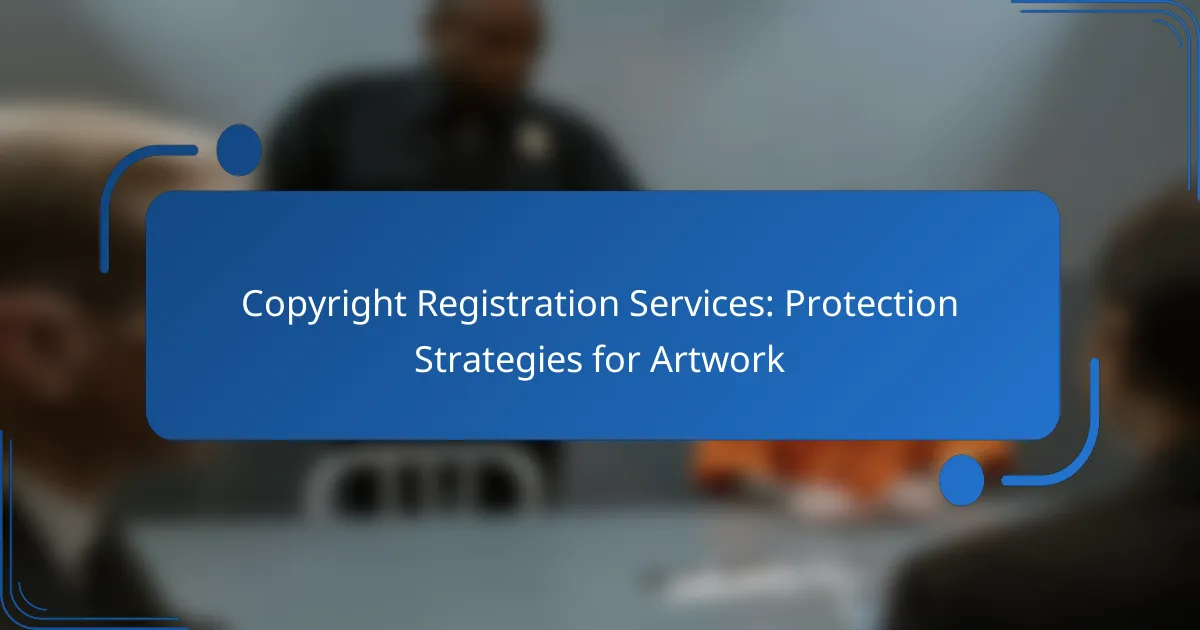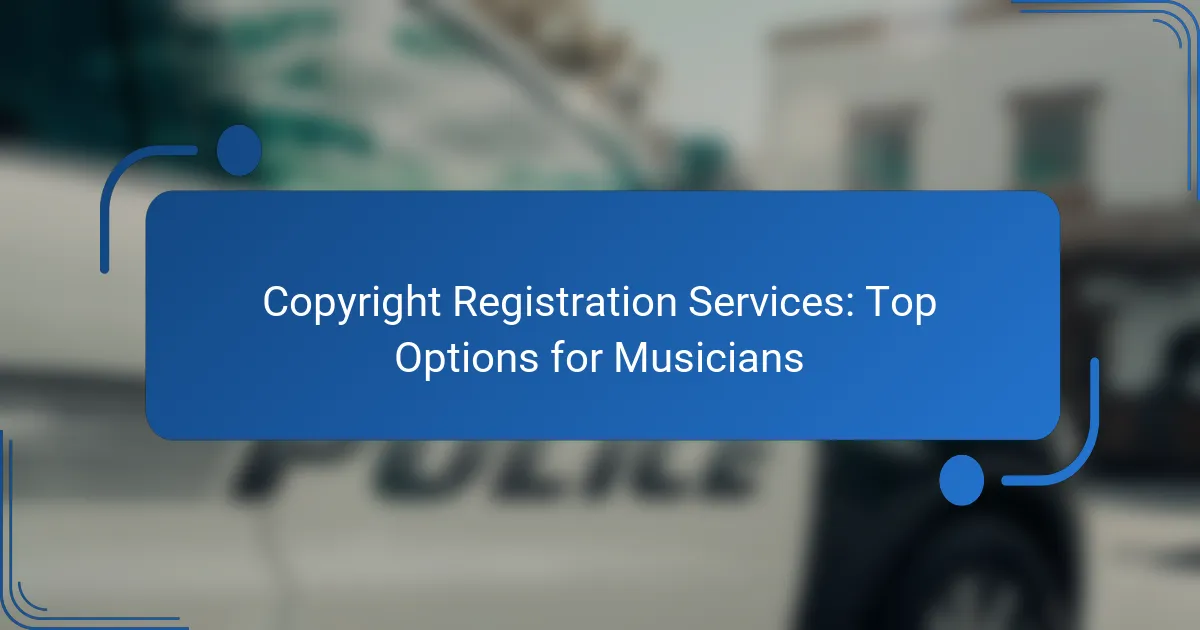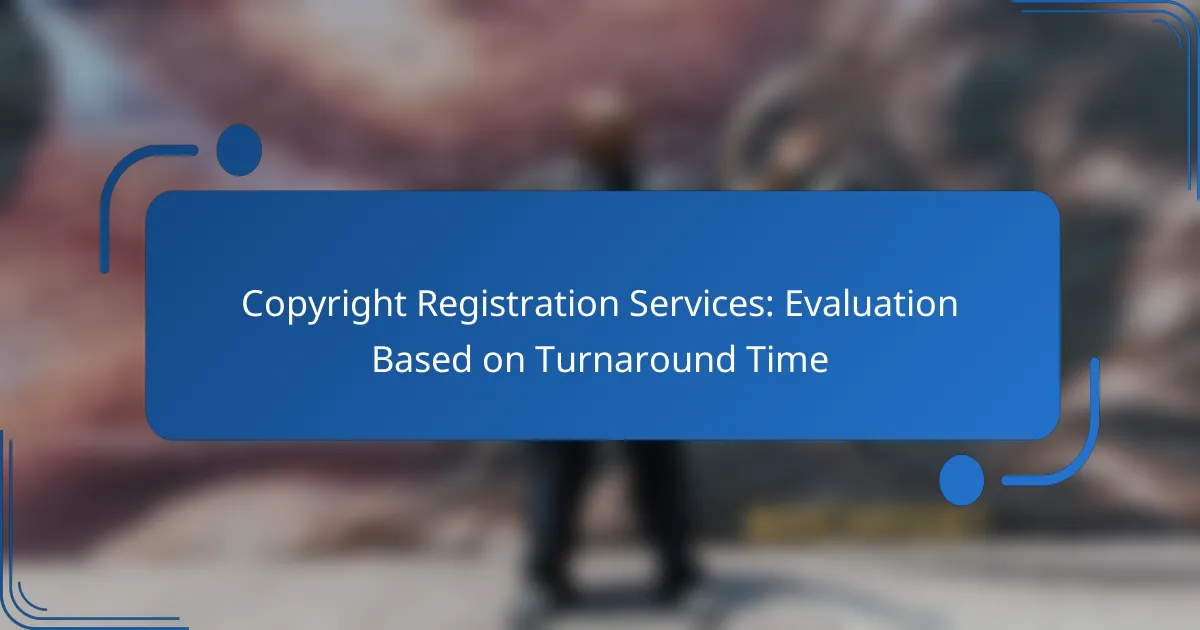For digital content creators, copyright registration is a crucial step in protecting their original works and ensuring their rights are enforceable. By formally registering with the U.S. Copyright Office, creators not only establish a public record of ownership but also gain access to legal remedies in the event of infringement. Understanding the costs and processes involved in copyright registration services can help creators safeguard their intellectual property effectively.
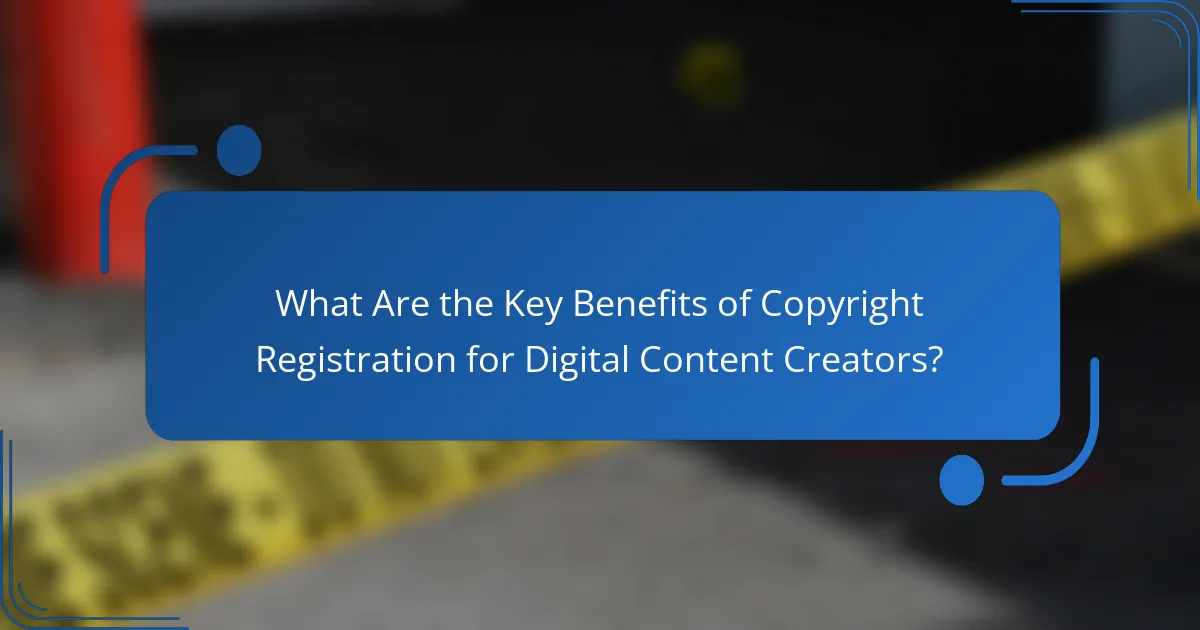
What Are the Key Benefits of Copyright Registration for Digital Content Creators?
Copyright registration offers essential advantages for digital content creators, including legal protection, the ability to enforce rights, and enhanced credibility. By registering their work, creators can safeguard their intellectual property and gain access to legal remedies in case of infringement.
Legal protection against infringement
Copyright registration provides a strong legal framework that protects digital content from unauthorized use. When a creator registers their work, they establish a public record that can deter potential infringers. This legal protection is crucial in a digital landscape where content can be easily copied and distributed.
Without registration, creators may find it challenging to prove ownership and defend their rights in case of infringement. Registration serves as a powerful tool to assert ownership and prevent misuse of their work.
Ability to enforce rights in court
Registered copyright holders have the right to take legal action against infringers in court. This ability is vital for digital content creators who may face unauthorized reproduction or distribution of their work. With registration, creators can file lawsuits more effectively and seek remedies for damages.
Additionally, having a registered copyright can simplify the process of proving ownership in court, as it provides clear documentation of the creator’s rights. This can lead to more favorable outcomes in legal disputes.
Eligibility for statutory damages
Copyright registration allows creators to be eligible for statutory damages and attorney’s fees in case of infringement. Statutory damages can range significantly, often between several thousand to tens of thousands of dollars, depending on the severity of the infringement.
This eligibility acts as a deterrent against infringement, as potential infringers may be more cautious knowing that registered works can lead to substantial financial penalties. It provides an added layer of security for creators investing time and resources into their digital content.
Public record of ownership
A registered copyright creates a public record that establishes ownership of the work. This record can be beneficial for creators seeking to license their content or attract potential clients. It serves as a credible proof of authorship that can enhance trust in business transactions.
Moreover, having a public record can help in resolving disputes over ownership, as it provides clear evidence of who holds the rights to the content. This transparency is particularly important in collaborative environments.
Enhanced credibility with clients
Registering copyright can significantly enhance a creator’s credibility with clients and partners. It signals professionalism and a commitment to protecting intellectual property, which can be a deciding factor for clients when choosing to work with a creator.
Clients are more likely to engage with creators who demonstrate a proactive approach to copyright registration, as it reassures them that their investments are safeguarded. This can lead to more opportunities and collaborations in the digital content space.
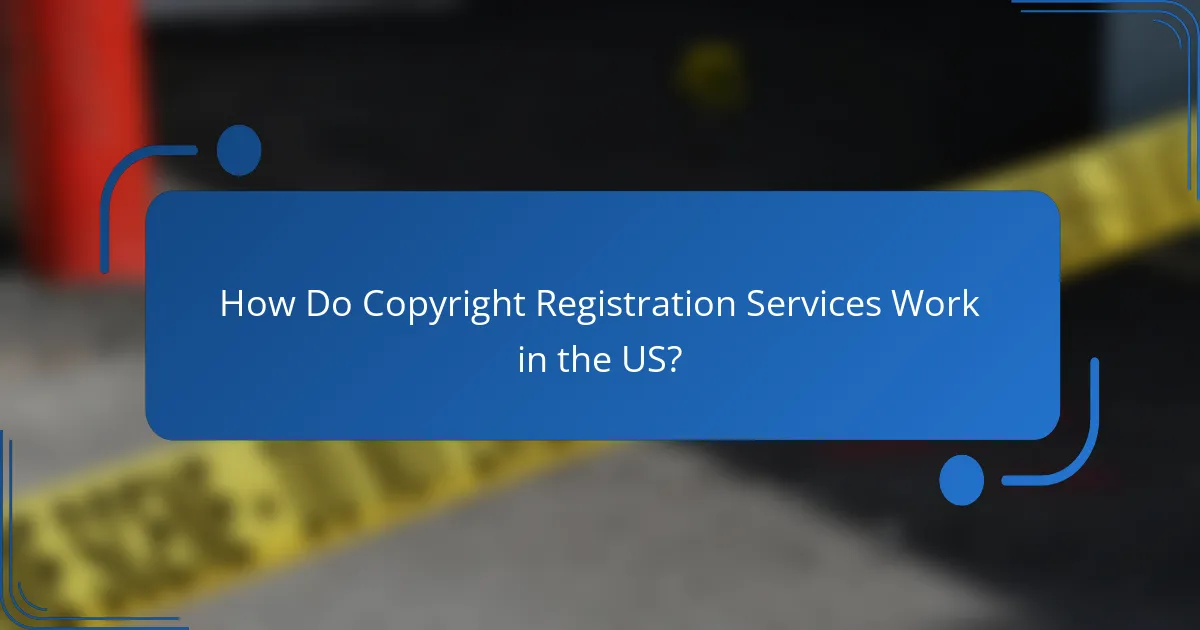
How Do Copyright Registration Services Work in the US?
Copyright registration services in the US help creators protect their original works by formally registering them with the U.S. Copyright Office. This process establishes a public record of ownership and provides legal benefits, including the ability to sue for infringement.
Step-by-step registration process
The copyright registration process typically involves several key steps. First, you need to complete an application form, which can be done online or via mail. Next, you must submit a copy of the work you wish to register, along with the required fee.
Once your application is submitted, the Copyright Office reviews it for completeness and compliance with regulations. If everything is in order, they will process your application and issue a certificate of registration.
Required documentation and fees
For example, online registrations are generally cheaper than paper submissions. Ensure you check the current fee schedule on the U.S. Copyright Office website to avoid any surprises.
Processing times and outcomes
Processing times for copyright registration can vary widely, often taking anywhere from a few months to over a year. Online applications tend to be processed faster than those submitted by mail.
Upon successful registration, you will receive a certificate, which serves as legal proof of your copyright. This can be crucial if you need to enforce your rights against infringers in the future.
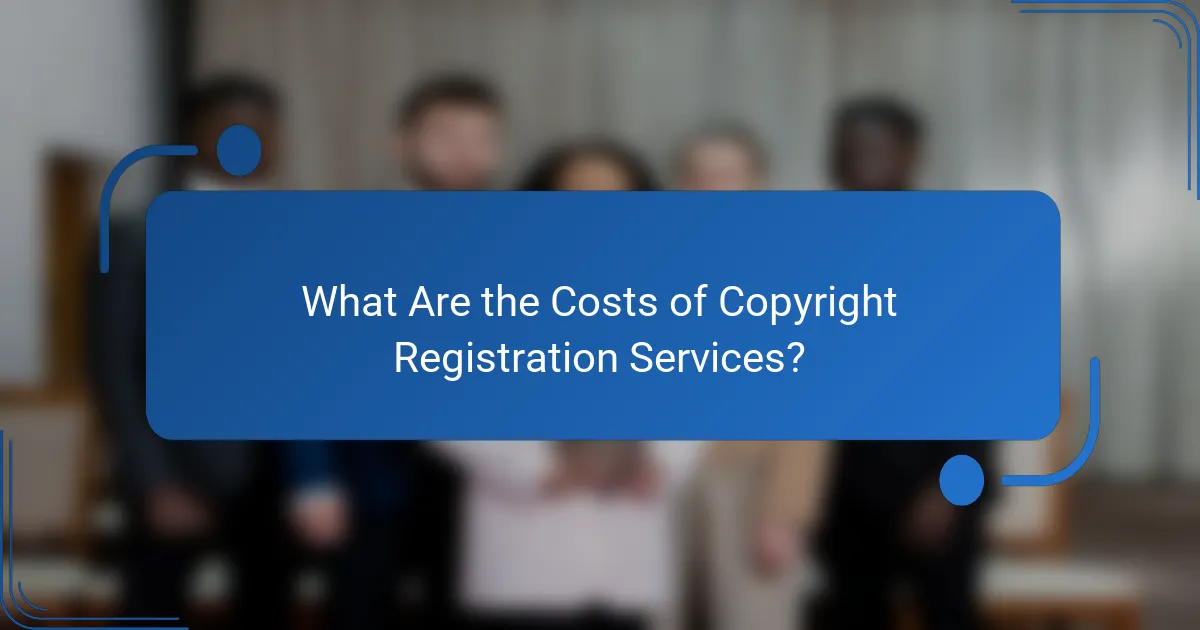
What Are the Costs of Copyright Registration Services?
The costs of copyright registration services can vary significantly based on the type of service and the urgency of the request. Generally, creators should expect to pay standard fees for registration, with additional charges for expedited processing and potential hidden costs that may arise during the application process.
Standard registration fees
Standard registration fees for copyright services typically range from $35 to $125 in the United States, depending on the type of work being registered. For example, electronic registrations are usually cheaper than paper submissions. It’s essential to check the specific fees on the official copyright office website or through authorized service providers.
In some countries, such as those in the European Union, fees may vary, so understanding local regulations and costs is crucial for creators in those regions.
Additional costs for expedited services
If you need faster processing, expedited services are available at an additional cost. In the U.S., this can range from $800 to $1,200, depending on how quickly you need the registration completed. Expedited services can significantly reduce wait times, often to a few days instead of weeks.
Consider whether the urgency justifies the extra expense, especially if your work is not time-sensitive. Weighing the benefits against the costs can help you make an informed decision.
Potential hidden fees
When registering for copyright, be aware of potential hidden fees that can arise. These may include charges for additional copies of your registration certificate, legal fees if you seek professional assistance, or costs associated with correcting errors in your application.
To avoid surprises, read the fine print of any service agreement and ask about all potential costs upfront. This proactive approach can help you budget effectively and ensure a smoother registration process.

Which Copyright Registration Services Are Most Recommended?
Several copyright registration services are highly recommended for digital content creators, including LegalZoom, the Copyright Office’s online services, and Rocket Lawyer. Each service offers distinct features and pricing, making it essential to choose one that aligns with your specific needs and budget.
LegalZoom copyright registration
LegalZoom provides a user-friendly platform for copyright registration, catering to individuals and businesses alike. Their service includes a comprehensive guide through the registration process, ensuring that creators can easily submit their works.
Pricing typically starts around $150, which includes filing fees and additional support. However, be aware that while LegalZoom simplifies the process, it may not offer the same level of legal advice as traditional law firms.
Copyright Office online services
The U.S. Copyright Office offers online registration services that are direct and cost-effective. This service allows creators to file their copyright applications electronically, which can expedite the process significantly.
Fees for online registration are generally lower, around $45 for a single work. Using the Copyright Office’s services ensures that you are following federal guidelines, but it requires a basic understanding of the application process.
Rocket Lawyer copyright services
Rocket Lawyer offers copyright registration as part of its broader legal services, making it a good option for those who may need additional legal support. Their platform provides templates and legal advice, which can be beneficial for creators unfamiliar with copyright law.
Costs for Rocket Lawyer’s copyright services vary depending on the subscription plan, typically starting around $39.95 per month. This service is ideal for creators who may need ongoing legal assistance beyond just registration.
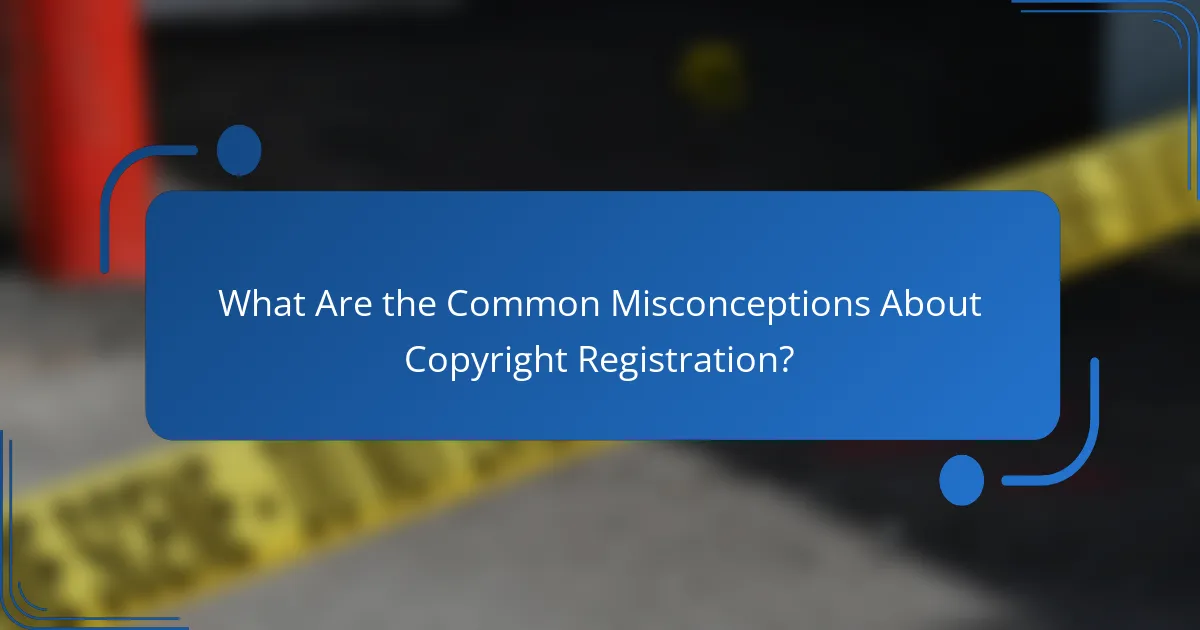
What Are the Common Misconceptions About Copyright Registration?
Many digital content creators hold misconceptions about copyright registration that can lead to confusion and misinformed decisions. Understanding these misconceptions is crucial for effectively protecting your creative work.
Registration is not mandatory
Copyright registration is not a requirement for copyright protection. Creators automatically hold copyright over their original works as soon as they are fixed in a tangible form, such as writing, recording, or digital publishing.
However, registering your work can provide significant advantages, including the ability to sue for statutory damages and attorney fees in case of infringement. Consider registering if you plan to distribute your work widely or if it has significant commercial value.
Copyright protection exists without registration
Even without registration, copyright protection is still in effect. This means that your original content is protected from unauthorized use or reproduction, as long as it is your own creation.
While unregistered works are protected, proving ownership can be more challenging in legal disputes. Keeping detailed records of your creation process can help establish your rights if needed.
Registration does not guarantee automatic enforcement
Registering your work does not mean automatic enforcement against infringement. While it provides legal advantages, you still need to actively monitor and enforce your rights against unauthorized use.
Consider setting up alerts for your work online and regularly checking platforms where your content might appear. Taking proactive steps can help you address potential infringements before they escalate.
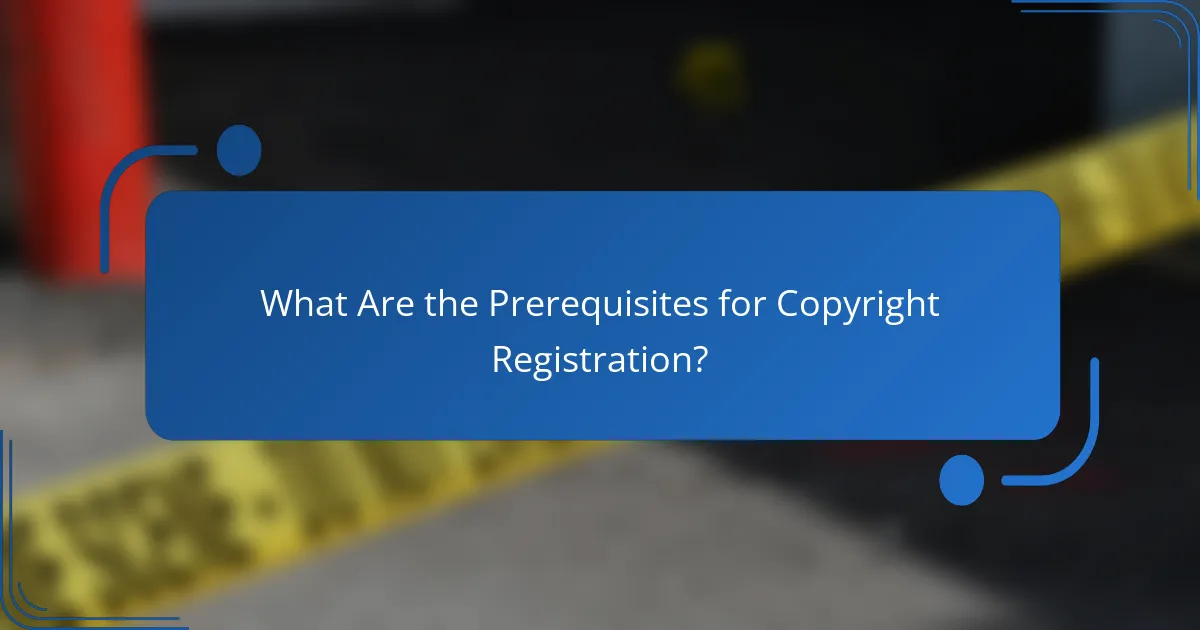
What Are the Prerequisites for Copyright Registration?
To register a copyright, the work must be original and fixed in a tangible medium. This means that it should be created by the author and expressed in a way that can be perceived, reproduced, or otherwise communicated.
Originality of the work
Originality is a fundamental requirement for copyright registration. A work is considered original if it is independently created by the author and possesses a minimal degree of creativity. This can include written texts, music, art, and digital content.
When assessing originality, it is crucial to ensure that the work does not copy or closely resemble existing works. For example, a unique photograph taken by a creator is original, while a direct reproduction of someone else’s image is not.
To strengthen claims of originality, creators should maintain records of their work’s development, such as drafts or notes. This documentation can be useful if disputes arise regarding the originality of the content.
